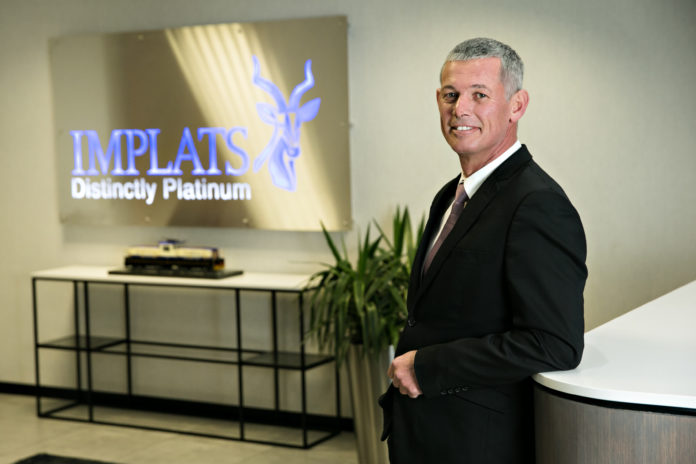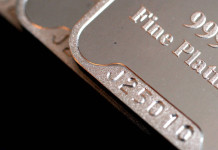
IMPALA Platinum (Implats) delivered the expected turnaround in interim numbers for its 2019 financial year and said the market for platinum group metals (PGMs) had shifted to “potential areas of growth” following an improvement in prices, especially rhodium.
Basic earnings, as guided by Implats in February, came in a R2.3bn from a loss of R163m in the interim period of the previous financial year. Headline share earnings were 310 cents a share from a 21 cent per share loss in the previous period.
Shares in the company at R55/share are more than 50% higher since the turn of the year. This is a far cry from the R15.91/share all time low recorded in August last year, and is a reflection of both the firm’s restructuring plans and improvements in the rand basket price.
Nico Muller, CEO of Implats, said the mood had changed in the PGM market following the continued improvement in palladium and rhodium prices, especially in the last six months in which the average rhodium price was up 107% at $2,395/oz.
The market was in a combined 3E PGM deficit and, more recently, industry discussions and debates have shifted from the need for supply rationalisation to potential areas of growth, the company said in notes to its interim figures.
Muller said, however, the group remained committed to its restructuring plans notwithstanding the lift in sentiment. The company announced in August 2017 that it would cut production by 230,000 ounces a year and reduce employee numbers by 13,000 lowering the number of operating shafts to six from 11. The process would take two years to complete.
Some 1,500 jobs had been cut from Rustenburg shafts of which only about 110 were in forced retrenchments. Muller said the process of restructuring would continue although the lift in average pricing could change the timing of certain initiatives. “We may change timing on restructuring or commercial options on closure,” he said today.
“We have categorically stated that we don’t want to support loss-making activities and it is not our intention to change strategic direction owing to short term price movements. Having said that, we have bullish outlook and we think platinum will be dragged up by rhodium and palladium. Rustenburg has significantly contributed to net cash,” said Muller.
Every mine in the portfolio was cash free positive in the period including Marula, one of Implats’ joint venture entities. The mine has been struggling of late and even identified as a possible divestment, however it is rich in rhodium production which benefited it.
As a result, net debt reduced to R976m as of December 31 from R5.33bn at June 30 2018 which was assisted by a R1.06bn forward sale of surplus inventory and the fact that capital expenditure was reduced.
Net debt has reduced from R5.33bn at June 2018 to R976m at Dec 2018, this was aided by a R1.06bn forward sale of surplus inventory and capex R500m lower than MSe, nevertheless is a positive surprise. Every mine in the portfolio was FCF positive after capex in the half.
“Overall, a strong set of results,” said Goldman Sachs in a report. “Operationally the company produced 800,000 ounces of platinum, about five percent ahead of our estimates which together with cost control saw the unit costs come in 11% better than our forecasts,” the bank added.
Muller previously said in the past that it was in discussions with potential buyers. Muller’s update is that the shaft was likely to be sold to contracting company owing to the relatively short life of mine at the operation.
On a refined platinum basis, production for the 2019 full year was moved up a notch to between 1.5 to 1.6 million oz compared to guidance of 1.5 million oz previously. But it was the cost performance that most impressed analysts. Unit costs were lowered a 1% year-on-year to R22,715 per oz versus guidance of R23,900 to R24,800/oz for the year.
“This is a very encouraging result by Impala,” an analyst said. “We agree with the strategy adopted in August 2018, agree with management changes over the past two years, and are encouraged by the execution to date, and impressed by the cash generation in the first half of the year”.
Despite the strong financial performance, Muller said a return to shareholder payments was not immediately a consideration given its capital commitments.










